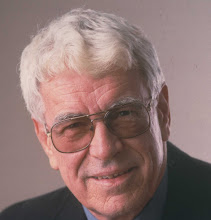“All of what we produce is going to be waste,” says Claude Ouimet. He waves his hand around the brand-new seminar room, studded with audio-visual devices. “This beautiful room, all this equipment, it's all going to be waste. It's just a matter of time.”
Claude Ouimet is head of InterfaceFLOR Canada and Latin America, a subsidiary of Interface Carpets of Atlanta, Georgia, a company already familiar to readers of this column. Inspired by its visionary founder, Ray Anderson, Interface aims to be not only the world's first zero-impact corporation, but also the world's first restorative corporation – an organization which actively improves the environment.
Claude Ouimet has thought a great deal about the future and the environment. He fears that his legacy to his children – our legacy to our children – is “a first class ticket.... on the Titanic.” And what he has just said is a stunning, transformative thought.
“All of what we produce is going to be waste.”
It is, too. I never thought of it this way, but viewed from the perspective of Gaia, the “economy” that we treasure so much is just a vast apparatus for the production of garbage.
Nor does the transformation from goods to garbage take very long. Claude Ouimet was speaking at EcoPrise 2008, a conference on business and the environment organized by Dalhousie University's Norman Newman Centre for Entrepreneurship and its Eco-Efficiency Centre. The Eco-Efficiency Centre's director, Ray Côté, handed me a graph produced by The Natural Step showing that of the raw materials and energy that go into US manufacturing, only 7% is transformed into products. The other 93% becomes waste – slag heaps, emissions, heat, by-products. And of the 7% that reaches the market, 80% is discarded after a single use. Think of packaging, motor oil, tissue paper, garbage bags.
The result: 99% of the raw materials and energy that we took from the earth to make industrial products has become waste within six weeks of sale. Ninety-nine percent!
Nature, by contrast, wastes nothing. Nature is cyclical, fluid and creative. One organism's wastes are another's nutrients. The fallen tree shelters the mouse and feeds the fungus. Substances and energies interweave, separate and re-join, looping together like the circles that represent the Olympic Games. Life forms are created, abandoned and re-created in the most intricate of dances, powered always by the sun.
Industrial societies, by contrast, are linear and reductive – and we're only beginning to understand the implications of those qualities. For instance, Nova Scotians are rightly proud of the fact that we've reduced the amount of solid waste going to our landfills by more than 50% -- but in truth that's only a baby step. We need to choke the waste stream at its source, resisting lavish packaging and planned obsolescence, refusing to buy what we don't need, re-learning to value quality and durability, ridding ourselves of “disposable” products that actually linger for centuries.
In short, we have to green our minds, change the way we view the world, and accept responsibility for our life decisions. More and more, our lives need to mimic natural cycles. If everything we produce is going to be waste, we have to ensure that it's useful waste, waste that nourishes life.
These are great challenges – with great opportunities. We're lucky to live at a time when all human activity is up for re-examination and re-invention – and not just by vanguard corporations like Interface, but by ordinary people and small local businesses. The dangers are great, but the opportunities are glorious.
One participant at Ecoprise 2008 was Robert Taylor, the whiskered, plain-spoken president of Taylor Lumber Company of Middle Musquodoboit. Taylor Lumber began in 1945 as a small local sawmill and horse logging operation, and now includes a major sawmill, a planer mill, a chipper, and a building supply store in Musquodoboit Harbour.
Taylor's problem was the mountains of chips and sawdust created by its mills. The solution was to use those wastes to fuel an electrical generator. The generator powers the mills and provides electricity to the local community. Its heat dries wood in the kilns, and its ashes replace lime on the fields of nearby farmers.
Taylor is now looking for a good use for the hot water from the generating plant. He contemplates using it to heat greenhouses, or possibly to warm up ponds for aquaculture, growing species like Arctic char.
The company also practices sustainable forestry, planting enough trees to replace what it cuts. Since the trees provide the mill's energy as well as its raw materials, the operation begins to take the elegant shape of a sustainable natural cycle.
“All of what we produce is going to be waste.” A sobering thought – but it's also a splendid opportunity to free our minds, liberate our imaginations, and discover a new, green world.
-- 30 --
Sunday, April 6, 2008
Greening Our Minds
Subscribe to:
Post Comments (Atom)

No comments:
Post a Comment